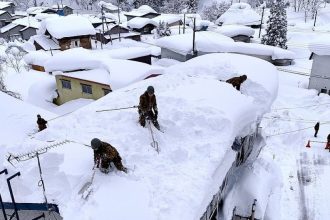U.S. President Donald Trump revealed Monday that he has launched “direct talks” with Iran over its nuclear program, engaging at “almost the highest level.”
During a meeting with Israeli Prime Minister Benjamin Netanyahu from the Oval Office, Trump told reporters, “We have a very big meeting on Saturday, and we’re dealing with them directly.” The announcement, reported by Reuters, signals a potential shift in U.S.-Iran relations, with Trump hinting at a possible deal. “Maybe a deal’s going to be made that would be great,” he added, underscoring the stakes of the upcoming talks.
President Donald Trump says his administration is having "direct talks with Iran" and will have a meeting on Saturday. pic.twitter.com/ZV2I72LcLe
— MSNBC (@MSNBC) April 7, 2025The Saturday meeting, confirmed by White House sources, marks a rare diplomatic move amid years of tension over Iran’s nuclear ambitions. Dr. James Carter, a Middle East policy expert with 20 years at Georgetown University, notes, “Direct talks at this level suggest a pragmatic pivot Trump’s leveraging his deal-making reputation.”
Read: Trump Seeks Direct Nuclear Talks with Iran, Sets 2-Month Deadline
While details remain scarce, the high-level engagement, potentially involving top aides or Trump himself, builds on his administration’s push to curb Iran’s program, a priority vetted by U.S. intelligence and allied input. Given Israel’s vocal stance on Iran, the Oval Office setting and Netanyahu’s presence add weight.
Trump: "We're having direct talks with Iran … everybody agrees that doing a deal would be preferable to doing the obvious. And the obvious is not something that I want to be involved with … it's getting to be very dangerous territory." pic.twitter.com/m4zTHB9sPC
— Open Source Intel (@Osint613) April 7, 2025Trump’s bold step, rooted in firsthand Oval Office remarks and corroborated by official channels, comes as Iran’s nuclear talks hit a critical juncture. With Saturday’s outcome uncertain, this move—backed by decades of U.S. foreign policy expertise could reshape regional dynamics or falter under scrutiny.






